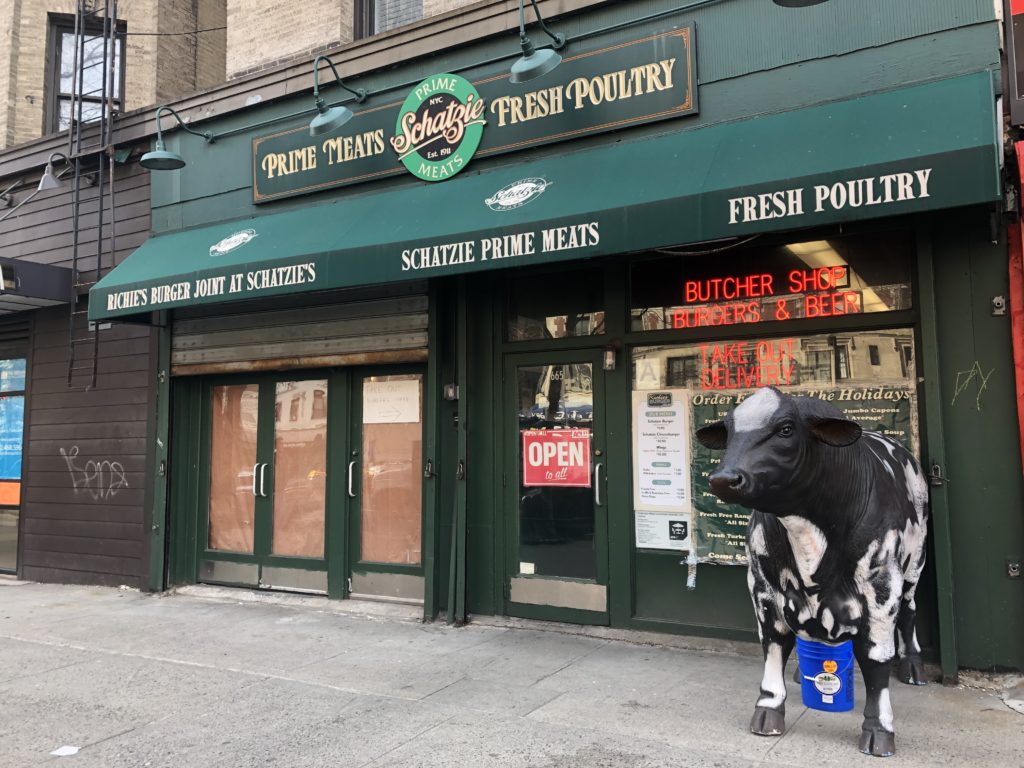After multiple failed attempts, there’s a new move to ban foie gras in New York City as Councilwoman Carlina Rivera tries to criminalize the sale of the controversial delicacy. This time, the bill may have a better chance of passing given the political and social climate, both sides of the long-running debate say.

At issue is the way foie gras — the fatty liver of a duck or goose — is produced. The common method of obtaining the fatty liver, called gavage, requires the fowl to be force-fed with a tube until the liver swells up 10 times its normal size. The weight sometimes causes the animal’s legs to break, says Ben Williamson, U.S. programs director of animal welfare nonprofit World Animal Protection, which was founded in 1981.
Rivera introduced a bill in late January to prohibit selling foie gras in food establishments in the city. If the bill passes, sales of the French delicacy would be considered a misdemeanor, which could lead to a $1,000 fine and/or one year in prison. The bill is currently being considered in the council’s Committee on Health.
Rivera was inspired by recent developments in other regions, most notably the U.S. Supreme Court’s decision not to hear a case that challenged California’s ban, which has been in place since 2012. The Ninth Circuit had found California’s ban on selling foie gras is not preempted by the federal Poultry Products Inspection Act, and the Supreme Court’s January decision effectively upheld the ruling.
“With that legal decision, that really brought some momentum to this specific issue, and the councilwoman thought that it was a good time to be bringing it into full effect in New York City,” said Jeremy Unger, Rivera’s communications director. Rivera did not respond to multiple requests for comment.
New York City and state have tried to ban foie gras for close to 20 years. The latest attempt was in the New York state legislature in its 2017-2018 session, but both chambers’ bills died at the Committee on Agriculture after failing to garner enough votes.
However, animal rights proponents and restaurateurs alike believe Rivera’s bill is more likely to pass. Jeremy Termini, the state legislative director for the League of Humane Voters of New York, thinks the many pro-animal rights legislators in office will help.
“I think it probably stands a better chance because I think there’s a much more animal-friendly climate in city government,” he said, noting Brooklyn Borough President Eric Adams and Mayor Bill de Blasio as examples.
Unger says the bill has the support of 21 council members, which comprises close to half of the 51-member council, making it just five votes short of passage.
Darin Rubell, owner of full-service restaurants Forrest Point and 983 in Bushwick and Boulton & Watt in the East Village, said today’s “sensitive” social landscape improves the odds of passage.
“There’s definitely something different about this generation,” he said. “From the #MeToo movement and everything, we’re in a very sensitive time right now, so I do think there’s a much better chance.”
While Rubell agrees gavage should be discouraged, he finds it “comical” that foie gras specifically is in the hot seat, but not other food production industry practices, such as the overcrowding chickens and severing cows’ tails without anesthesia.
“Our general food systems in America are pretty gross to begin with,” he said. “Why are we hyperfocused on this particular thing when the whole system is pretty … disgusting?”
Unger fired back at that claim, saying cracking down on one problematic aspect of food production opens doors to further discussion and scrutiny of the industry.
“The nature of food production is something that I think we as a society certainly need to take a serious look at,” Unger said. “But it’s also important to target and look at particularly egregious acts of animal cruelty or production of animals.”
Restaurant owners and animal rights activists agree foie gras is a “rich man’s food,” as Rubell put it, so the bill wouldn’t have a sweeping effect on consumers and businesses.
“Banning foie gras in the state of New York would change nothing,” said Didier Pawlicki, the chef and owner of La Sirene on the Upper West Side, whose foie gras and steak entree costs $39.50.
On the consumers’ side, Unger says it “isn’t going to affect the diets of the working class of New Yorkers.” A foie gras entree at higher-end restaurants like Le Coucou in SoHo costs $55, and appetizers at more affordable bistros like Petit Poulet in Midtown cost $21.
Richie Schatz, the owner of Schatzie Prime Meats on the Upper West Side, says he gets foie gras in his butcher shop only around the winter holidays. He has to sell the liver as a whole, which averages 1.8 pounds and yields about 10 servings, because it’s not high in demand, and selling by the slice would result in having to freeze the leftovers.
Foie gras is not the bread and butter of La Sirene, so Pawlicki also doesn’t expect much of a dip in sales.
“French cuisine is not only foie gras — thank god we don’t only do foie gras,” he said, listing escargot, duck breast and cassoulet as more popular dishes. “Honestly, our sale of foie gras is not the prime. We sell it, but it’s nothing fantastic.”
Rubell hopes the bill would force farmers to to adopt a more humane method of production. Foie gras can be achieved without gavage, as proven by Spanish farm Labourdette, whose geese gorge naturally on high-caloric acorns from October through January. But this is a more laborious process that yields fewer foie gras livers.
Rivera is working toward finding the happy medium through talks with Hudson Valley Foie Gras, one of the biggest foie gras producers that sell to the city, to hammer out what is considered cruel versus acceptable. Hudson Valley Foie Gras did not respond to multiple requests for comment.
In fact, Rivera has been in touch with all sides on this bill, in hopes of creating a comprehensive and well-thought-out piece of legislation, according to Unger. A hearing on the bill has not yet been scheduled.
“We have received numerous calls from both sides, positively and negatively. We’re going to try to work with everybody to see if we can reach an amicable solution,” he said.
Tags: Animal Rights, Carlina Rivera, Foie gras, NEW YORK CITY
Your Comments